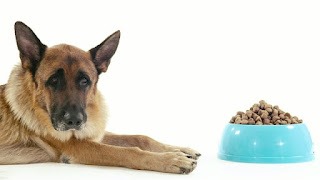Why do I feel tired when it's hot?
.jpg)
Summer is here, temperatures are rising... And with them, that feeling of fatigue that seems to arrive for no reason.
If you feel exhausted in hot weather, you're not alone. This feeling is common, but it's the result of very real mechanisms: the body uses a lot of energy to maintain its temperature and compensate for water loss.
Understanding these physiological reactions allows you to adopt the right reflexes when faced with heat, to preserve your energy and health daily.
Heat and fatigue: a common but little-known duo
When the thermometer rises, our bodies must exert significant effort to maintain a stable body temperature.
This process, called thermal regulation, mobilizes several physiological mechanisms and requires a significant amount of energy.
Even without physical exertion, this constant adaptation can lead to a feeling of fatigue.
The body overheats: an invisible effort
To cool down, the body triggers several internal regulatory mechanisms:
Excessive sweating which allows body heat to be lost through evaporation.
Increased heart rate, to better distribute heat throughout the body;
Dilation of blood vessels, which helps heat escape, but can also cause hot flashes, a feeling of heaviness or tired legs.
Even in the absence of physical exertion, all these adjustments mobilize energy, call upon the body's reserves, and can lead to real exhaustion. This explains the frequent sensation of heat and fatigue as soon as temperatures rise, especially during heat waves.
Dehydration: a major factor in fatigue
During periods of intense heat, water loss through perspiration increases. If this loss is not compensated by sufficient water or mineral salt intake, dehydration gradually sets in.
Dehydration symptoms to watch for
Symptoms of dehydration are sometimes subtle at first, making them easy to ignore. But as they develop, they can become more pronounced and quickly affect overall well-being:
- Feeling of intense thirst: a sign that the body is trying to compensate for a lack of water.
- Persistent headaches: often linked to poor hydration of the brain;
- Sudden dizziness or fatigue: caused by a drop in blood pressure;
- Muscle cramps: due to the loss of mineral salts through perspiration;
- Reduced or very heavy sweating: indicates a disruption in thermoregulation.
Heat-related fatigue can therefore be the very first warning sign of ongoing dehydration. It deserves special attention, especially in children, the elderly, or patients with chronic diseases, whose regulatory mechanisms are more fragile.
Why are some people more sensitive to heat?
Not everyone reacts to heat the same way. Some people are naturally more sensitive, and several factors increase the risk of experiencing significant fatigue as temperatures rise:
- Advanced age: Seniors sweat less efficiently and feel less thirsty, which exposes them to heat-related disorders, such as hot flashes, dizziness, or, in the most serious cases, heat stroke;
- Taking medication: certain treatments (diuretics, antihypertensives, psychotropic drugs) can alter thermal regulation or increase water loss;
- Intense physical activities: when exercising in hot weather, the body rapidly loses large amounts of water and minerals, which increases the feeling of exhaustion.
- Poorly ventilated, too confined, or humid environment: limits the natural evacuation of body heat.
Identifying these risk factors at the start of the hot season allows you to adapt your behavior, limit the adverse effects of heat, and, above all, prevent excessive or even dangerous fatigue.
How to relieve heat-related fatigue?
There are several ways to relieve the effects of heat on the body and regain some tone.
React quickly and well: the right reflexes
To prevent heat-related fatigue from setting in, it is essential to quickly adopt a few simple actions that help the body better tolerate high temperatures.
- Drink regularly, even when not thirsty (water, infusions, mineral waters)
- Favor rehydration solutions in case of excessive sweating
- Lighten meals to avoid digestive overheating
- Refresh the body with warm showers or damp cloths
- Limit physical activities to the cooler hours
- Ventilate or air-condition living areas to maintain a bearable indoor temperature
If in doubt, if you experience unusual symptoms or persistent fatigue, it is advisable to consult a doctor or seek advice from a general practitioner.
Prevention: How to avoid fatigue during extreme heat?
To better cope with high temperatures, a few simple adjustments to your daily routine can make all the difference.
Adapt your daily life
When faced with heat, a few simple actions can make all the difference in avoiding exhaustion and maintaining your balance.
- Drink small amounts of water throughout the day
- Wear light, cotton, light- colored clothing
- Organize your physical activities early in the morning or in the evening
- Monitor night sweats and sleep, which is often disturbed
- Avoid going out during heat waves.



%20(1).jpg)
.jpg)

.jpg)
%20(1).jpg)

No comments:
Post a Comment